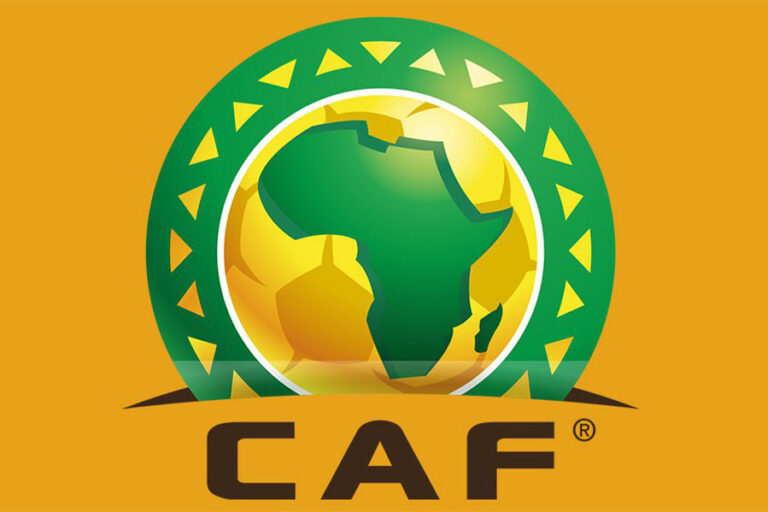The TotalEnergies Confederation of African Football (CAF) Women’s Champions League 2022 Club Licensing procedure has officially begun and CAF states that the registration period will last through May 31, 2022.
CAF’s objective to promote and professionalize football in Africa has been centered on club licensing. Last year, Egypt hosted the inaugural TotalEnergies CAF Women’s Champions League.
CAF Member Associations that want their clubs to compete in the zonal qualifications and final stages of the CAF Women’s Champions League 2022 must meet the following requirements:
•The Member Association (MA) must have an active Women’s Domestic League for at least (3) three seasons starting from 2015.
•The MA Women’s Domestic league must include a minimum of (10) ten teams in each of the active seasons.
The system’s introduction and execution helps CAF to have a better understanding of the realities of the continent’s top women’s football teams and hasten the professionalization of the women’s game.
The CAF Women’s Club Licensing Regulations are divided into five sections: sports, administration, infrastructure, financial, and legal.
It is worth noting that the CAF Women’s Club Licensing standards are straightforward and achievable for clubs to achieve, and that they apply to all women’s football clubs competing in the CAF Women’s Champions League.
CAF Begins Licensing Procedure for 2022 Women’s Champions League
Egypt drawn with Ethiopia in Cup of Nations qualifiers
African champions Senegal were handed a regulation draw for the Africa Cup of Nations group qualifiers that kick off in June.
They were paired with Benin, Mozambique and Rwanda in Group L in the draw conducted, with the top two finishers qualifying for next year’s finals in the Ivory Coast.
Egypt, runners-up at the last edition in February, also looks to have a comfortable path to a record 26th finals appearance in Group D, where they are up against Ethiopia, Guinea and Malawi.
Guinea, the best-ranked team among Egypt’s opponents, are likely to be their biggest challengers for top spot.
They reached the Nations Cup round of 16 in the last two editions and last met Egypt in a friendly in June 2019, which they lost 3-1 in a warm-up for the biennial tournament.
Malawi also improved of late, having booked a last-16 berth at the Nations Cup in Cameroon earlier this year before narrowly losing 2-1 to pre-tournament favorites Morocco.
Kenya and Zimbabwe were included in yesterday’s draw despite Fifa suspensions but will be kicked out of the qualifiers if their respective football association officials are not restored to their posts before the matches start in two months’ time
However those FAs are unlikely to be reinstated by world soccer’s governing body as their governments have taken strong action against officials they accuse of corruption.
The groups in which Kenya and Zimbabwe were drawn are therefore set to be left with only three teams.
Passing on the charm of Chinese language continuing the splendid chapter of China and Africa
By Chen Xufeng
The April 20th 2022, is the solar term “Grain Rain”, and also the 13th Chinese Language Day. “Grain Rain” is the 6th of the 24 solar terms, and the last solar term of spring. It embodies the beauty when spring turns to summer, and represents the growth of all things. It is said that the Inventor of Chinese Characters, Cang Jie, created Chinese characters on this day. At that time, the people were suffering from famine. Heaven poured rain of grain to appreciate Cang Jie’s contribution, as a result, the people were saved. The United Nations selects “Grain Rain” as Chinese Language Day, to commemorate the contribution of Cang Jie.
Chinese language and characters, rooted in traditional Chinese culture, are important carriers of Chinese culture. From Oracle to Regular script, from Confucius and Mencius to Neo-Confucianism of the Song and Ming Dynasties, from the Four Great Inventions to PI, from the Great Wall to the Terracotta Warriors, the Chinese civilization, which has undergone over 5,000 years of historical changes, embodies the deepest spiritual aspirations of the Chinese nation and is the source of its endless growth. Chinese culture has a long history, which contains the cosmological view of harmony between man and nature, the international view of harmony among nations, the social view of harmony without uniformity, and the moral view of goodwill among people. The concepts of peace, amity and harmony are in the DNA of the Chinese nation, and have shaped the unique style of Major Country Diplomacy with Chinese Characteristics.
Since the reform and opening-up, China has become increasingly connected with the world and there is an ever-growing demand for the world and China to understand each other. The Chinese language, written in Chinese characters, embodies the wisdom of the Chinese civilization. It is the common wealth of all mankind and is playing an increasingly important role in promoting exchanges and mutual learning among civilizations and enhancing friendship between the Chinese people and people of other countries. According to statistics, by the end of 2021, more than 25 million people were learning Chinese outside China, and the total number of foreign Chinese learners have reached nearly 200 million. In Africa, 16 countries included Chinese language in their education system, over 600 thousand African people are learning and using Chinese. Through learning Chinese, more and more international friends have gradually learned about the customs, etiquette, social structure, ethics and philosophical thinking of the Chinese nation over thousands of years, and experienced China’s rapid development and changes. China is also actively engaged in cooperation with other countries in this regard. More than 1,500 Confucius Institutes and Classrooms and more than 60 overseas cultural and tourism institutions have been set up in 159 countries. 61 Confucius Institutes and 11 Classrooms as well as 6 China Culture Centers have been established in 46 African countries. These act as a platform to further promote exchanges and mutual learning between Chinese and foreign civilizations. On April 20th, Mission of China to the African Union and the United Nations Economic Commission for Africa jointly hosted the Chinese Language Day celebration. The Mission also exhibited on its social media Chinese cultural symbols, traditional moral concepts, policies and propositions with their writing, pronunciation and interpretation, which showed the charm of Chinese to African friends, and also provided a platform for exchanges and learning of Chinese culture.
Africa is one of the cradles of human civilization. The ancient Egyptian civilization, the Kingdom of Axum, the Songhai Empire and the Swahili civilization are all treasures of human civilization and have created colorful African cultures. The traditional Chinese and African civilizations both embody the values of collectivism, harmonious coexistence between people and between man and nature. This not only brings the Chinese and African peoples closer, but also embodies the common aspiration of both sides to respect cultural diversity and overcome cultural misunderstanding through exchanges. The Chinese Government is always committed to promoting people-to-people exchange between China and Africa to further enhance mutual understanding and friendship. Over the past years, the two sides have carried out signature culture programs such as the Year of Culture, Happy Spring Festival, Chinese and African Cultures in Focus. We also encouraged joint development and production of more works that tell stories about Africa and China-Africa friendship. Last year, under AU’s theme of “Arts, Culture and Heritage”, China and African countries overcame the difficulties caused by COVID-19 pandemic and made full use of online and offline platforms to carry out a series of cultural & tourism, art & heritage workshops and seminars with rich contents and distinctive themes. We also further promoted Confucius Institutes and Luban Workshops to bring benefits to Africa. Last year during the Eighth Ministerial Conference of FOCAC, Chinese President Xi Jinping put forward “Nine Programs” to further China-Africa cooperation, of which “the cultural and people-to-people exchange program” is an important part. China and Africa will host film festivals in each other’s countries, hold China-Africa women and youth forums, support making more and more African countries become destinations for Chinese tourist groups, in order to further exchanges in education, culture, tourism, media, science and technology, and facilitate dialogues among think tanks, youth and women.
Diversity of civilizations is an inexhaustible driving force for human progress, and exchanges and mutual learning among civilizations are the common aspiration of people of all countries. Only by promoting exchanges, dialogue and harmonious coexistence between different civilizations can we overcome the trap of clash of civilizations and achieve significant progress and development. We will continue to advocate the vision on civilization of equality, mutual learning, dialogue and inclusiveness. Led by Global Development Initiative, Belt & Road Initiative and FOCAC, we will promote the spirit of China-Africa friendship and cooperation, as well as our exchange and mutual learning, so as to lay solid foundations for Community with a Shared Future for China and Africa and for the mankind, and to inject lasting impetus into the enduring friendship, common development and progress of the Chinese and African peoples.
Chen Xufeng is Chargé d’Affaires of Mission of China to the AU for the Celebration of the UN Chinese Language Day.
$400M worth of petroleum smuggled out of the country
Around 400 million dollars’ worth of petroleum has been illegally smuggled from Ethiopia in 2020/21 according to reports. The contrasting prices with markets in neighboring countries have offered a lucrative prospect for profit through cross-border contraband trade, causing irregularities and disruptions in domestic fuel distribution.
“Even if there is no figure set by the government’s side, the issue is a huge problem the country is facing,” said Ahmed Tusa, Director of Ethiopian Petroleum and Supply Enterprise (EPSE) whilst commenting on the issue.
Ethiopia’s annual oil consumption has reached 3.8 million metric tons. Which 65 percent of this is gasoline. Over 250 million dollars is currently spent every month on fuel purchases.
As Ahmed elaborates, to cope with the challenge, the enterprise is applying different mechanisms both short-term and medium action plans. Applying quota and strengthening the control is noted as the short-term mechanism whilst removing the government subsidy from oil products are viewed as the sustainable solution.
Recently, the central government has announced that it has designed to apply a quota on oil distribution for stations in Somali and Oromia regions mainly for the towns that are highly attached to the contraband activity.
As the enterprise’s director highlights, the quota allows the government to limit the amount it delivers to those border areas. The decision will impose a burden on regional administrations to tighten their regulation to curb the contraband with the aim to keep the public from petroleum shortage.
Likewise, removing subsidies will be applied with different mechanisms where it will be removed within one to five years based on assessments. As Ahmed indicates the government is working closely with different stakeholders on the issue. “This will help us to minimize the price gap with neighboring countries,” Ahmed added.
Ethiopia allocates an almost similar proportion of foreign currency income secured from export earnings to oil imports.
Compared to the previous year, the annual petroleum import bill of the Government has increased by close to 19 percent during the last budget year 2020/21 reaching an all-time high of 72.60 billion birr. In the previous budget year (2019/20) ended July 7, 2020; Ethiopia spent a total of 62.05 billion birr to purchase close to 3.87 billion metric tons of petroleum.
With regards to pointing out the thorn in this space, oil company executives, transport companies, and gas stations are said to be part of the problem as opposed to the solution.





